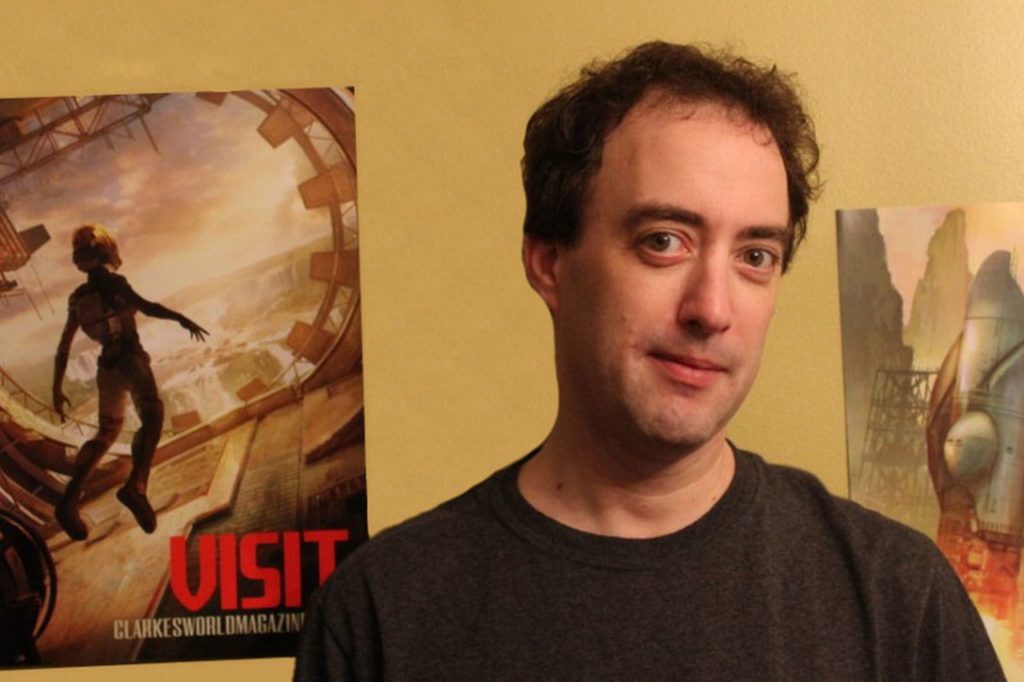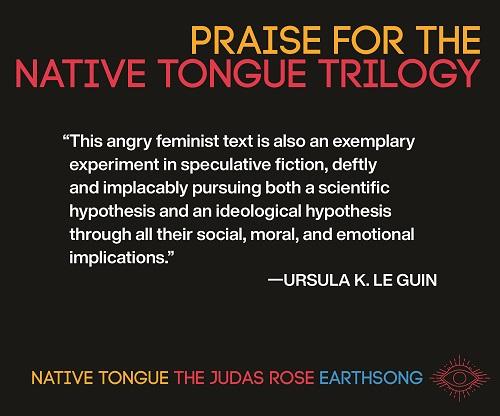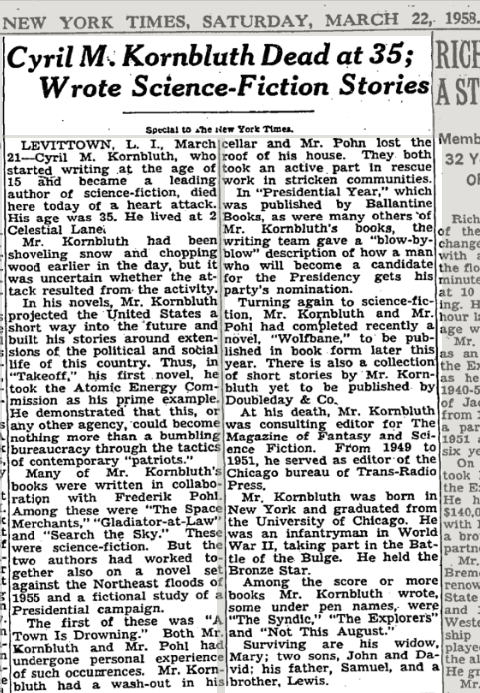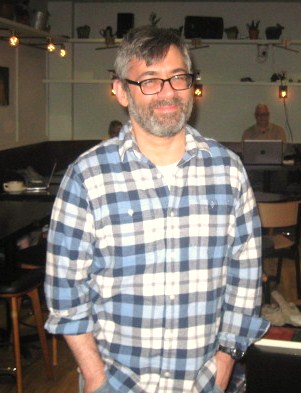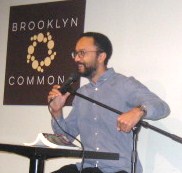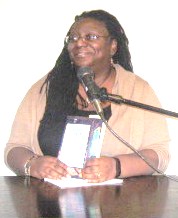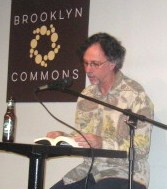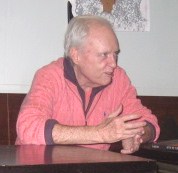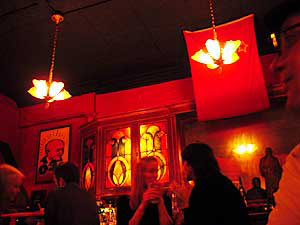(1) FLOTSAM AND JETSAM. The five-day “Treasures From Planet Hollywood” auction brought in more than $15.6 million from over 5,500 bidders worldwide across some 1,600 lots, according to Heritage Auctions. Here are some items of genre interest that fetched big bucks.

…The whip from Indiana Jones and the Temple of Doom sold for $525,000 to become the most valuable prop or costume from the beloved franchise…
Another first-day smash was the Bapty& Co.-made ax Jack Nicholson used to heeeeeere’s-Johnny his way through the bathroom door in Stanley Kubrick’s The Shining. Among the first props Planet Hollywood secured before its grand opening in New York City in 1991, that ax sold for $125,000. When that sold Wednesday after a fierce bidding war, the auction room erupted in applause — for the first time, but not the last.
Over the five-day event, the hits kept coming: The Barbasol can Wayne Knight uses to smuggle dinosaur embryos out of 1993’s Jurassic Park realized $250,000. The blaster Princess Leia carried across the forest moon of Endor in Return of the Jedi sold for $150,000, while an original Stormtrooper blaster from Star Wars, which Bapty & Co. forged from a British Sterling submachine gun, sold for $112,500.
Tobey Maguire’s black symbiote suit from 2007’s Spider-Man 3 swung out the door for $125,000, just a web ahead of one of his signature Spidey suits from the same film, which realized $106,250. A “good guy” Chucky doll from 1988’s Child’s Play scared up a winning bid of $106,250….…. A set of three Sankara stones from Indiana Jones and the Temple of Doom realized $100,000, while “the cup of the carpenter” — the Holy Grail itself — sold for $87,500.
But one of the auction’s first bidding wars was over a display figure wearing Gary Oldman’s Vlad the Impaler reproduced armor from 1992’s Bram Stoker’s Dracula, which Planet Hollywood obtained from technical advisor Christopher Gilman and sold on Wednesday for $87,500. And on the auction’s final day, a bidding war broke out over a prop from one of Martin Scorsese’s most underappreciated masterpieces, his 2011 adaptation of Brian Selznick’s children’s book Hugo, from which the original Mechanical Man automaton realized $81,250….
The top-selling item overall was the “Titanic prop that saved Rose and sparked debate…” reports NPR.
…”The wood panel from Titanic that saved Rose — but, controversially, not Jack — was the king of the auction, realizing $718,750 to float to the top of the five-day event,” auction house Heritage Auctions said in a release….
(2) SPOT RESOLUTION. Camestros Felapton wants you to know “Why I Declined a Hugo Spot”.
…2023 looms large here and there were definitely people I would rather see on the Hugo ballot for Best Fan Writer this year than myself. One was obviously Paul Weimer but I was certain he’d be top of most people’s ballots anyway but I was hoping some Chinese fans would make it onto the category. That didn’t happen but it is a decent list of finalists and there is nobody there that I would have wanted to replace.
Closely related to this was also the sense that I was likely to have gathered additional votes from things that I had written in 2024, specifically on the 2023 Hugo Award stats. Even if that wasn’t the case it would have felt like it was the case to me. So, I thought I’d feel happier skipping this year and putting my hat into the ring for next year…
(3) DREAM FOUNDRY CONTESTS OPEN SOON. The Dream Foundry’s annual contest for emerging artists and writers will take entries from April 1 until May 27, 2024. Every year their contest coordinators select ten finalists from a pool of submissions from around the world. Both contests offer cash prizes, first choice of seats in Flights of Foundry workshops, and other opportunities. Eligibility requirements and full details about prizes are at the links:
- Art Contest — This year’s art contest will be judged by Lauren Raye Snow & Jessica Cheng, The contest coordinator is Grace P. Fong.
- Writing Contest — The writing contest will be judged by Valerie Valdes and C.L. Polk, and our contest coordinator is Julia Rios.

(4) KGB. Fantastic Fiction at KGB reading series hosts Ellen Datlow and Matthew Kressel present Robert Levy and Jennifer Marie Brissett on Wednesday, April 10 at 7:00 p.m. Eastern. Location: KGB Bar, 85 East 4th Street, New York, NY 10003 (Just off 2nd Ave, upstairs).
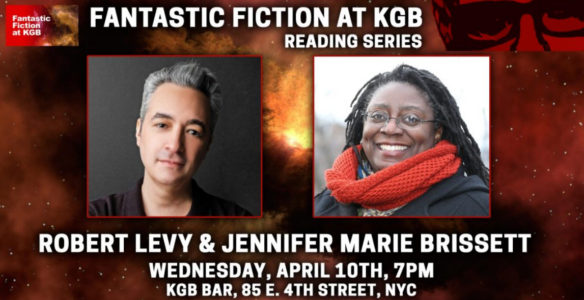
ROBERT LEVY
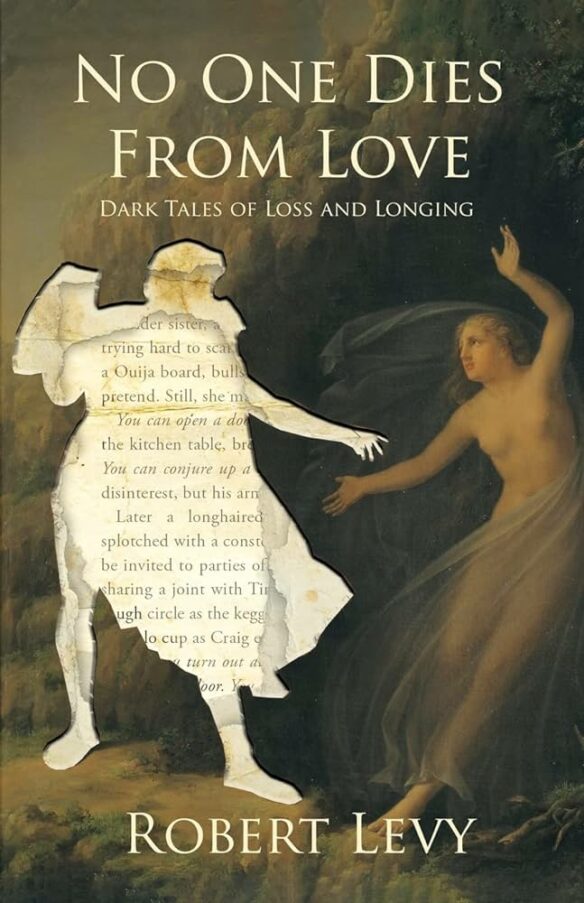
Robert Levy’s novel The Glittering World was a finalist for the Shirley Jackson Award and the Lambda Literary Award. His collection No One Dies from Love: Dark Tales of Loss and Longing was published last year by Worde Horde and includes stories from The Magazine of Fantasy & Science Fiction, Nightmare, Black Static, The Dark, The Best Horror of the Year, and The Year’s Best Gay Speculative Fiction. Trained as a forensic psychologist, he teaches at the Stonecoast MFA Program in Creative Writing and can be found at TheRobertLevy.com.
JENNIFER MARIE BRISSETT
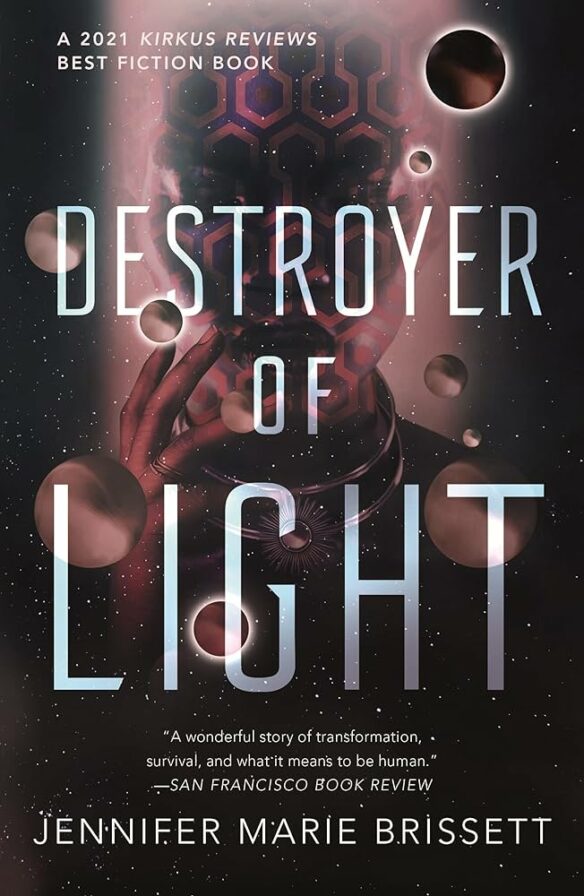
Jennifer Marie Brissett is the author of Destroyer of Light, which received a starred Kirkus Review and was on its list of Best Fiction of the Year. She is also the author of Elysium, which won The Philip K. Dick Award Special Citation and was a finalist for the Locus and Tiptree Awards. And once a long time ago she owned and operated an independent bookstore in Brooklyn. She lives in Manhattan where she is currently working on her next novel Daughters of the Night. Find her via her website at www.jennbrissett.com
(5) CLIMATE FICTION CONTEST OPENS. Grist’s “Imagine 2200 climate fiction contest 2024” is open for submissions through June 24.

Grist is excited to open submissions for the fourth year of our Imagine 2200: Climate Fiction for Future Ancestors short story contest.
Imagine 2200 is an invitation to writers from all over the globe to imagine a future in which solutions to the climate crisis flourish and help bring about radical improvements to our world. We dare you to dream anew….
…. The winning writer will be awarded $3,000. The second- and third-place winners receive $2,000 and $1,000, respectively. An additional nine finalists will each receive $300. All winners and finalists will have their story published in an immersive collection on Grist’s website. …
We are thrilled to also announce the judges for our 2024/25 contest: Omar El Akkad and Annalee Newitz. El Akkad is an author and journalist whose award-winning debut novel, American War, is an international bestseller and was selected by the BBC as one of 100 Novels That Shaped Our World. Newitz is a science fiction and nonfiction writer whose third novel, The Terraformers is a finalist for the Nebula Award, and whose latest nonfiction book, Four Lost Cities, is a national bestseller.
Imagine 2200 celebrates stories that envision the next decades to centuries of equitable climate progress, imagining futures of abundance, adaptation, reform, and hope. We are looking for stories that are rooted in creative climate solutions and community-centered resilience, showing what can happen as solutions take root, and stories that offer gripping plots with rich characters and settings, making that future come alive.
In 2,500 to 5,000 words, show us the world you dream of building.
Your story should be set sometime between the near future and roughly the year 2200….
(6) WANT TO GO TO SPACE? NASA is accepting applications to “Become An Astronaut” through April 16. The complete guidelines are at the link.
Astronaut requirements have changed with NASA’s goals and missions. Today, to be considered for an astronaut position, applicants must meet the following qualifications:
- Be a U.S. citizen
- Have a master’s degree* in a STEM field, including engineering, biological science, physical science, computer science or mathematics, from an accredited institution.
- Have a minimum of three years of related professional experience obtained after degree completion (or 1,000 Pilot-in-Command hours with at least 850 of those hours in high performance jet aircraft for pilots) For medical doctors, time in residency can count towards experience and must be completed by June 2025.
- Be able to successfully complete the NASA long-duration flight astronaut physical.
(7) LOUIS GOSSETT JR. (1936-2024). Actor Louis Gossett Jr., winner of an Oscar for his performance in An Officer and a Gentleman and an Emmy for his role in TV’s Roots,died March 29 at the age of 87.
His genre resume includes the movie Enemy Mine (as the alien soldier), the Watchmen TV series (as the former Hooded Justice, for which he won an Emmy), and an episode of Touched By An Angel (a role which also earned an Emmy nomination). He voiced Lucius Fox in The Batman animated series (2007).
(8) TODAY’S BIRTHDAY.
[Written by Cat Eldridge.]
Born March 29, 1957 — Elizabeth Hand, 67. These are my personal choices, not an overview of her career.
I’ll say up front that my favorite work by Elizabeth Hand is an atypical work by her, Wylding Hall. Using an oral history framing to tell the story of when the young members of a British folk band decide to record a new album, they choose this ancient country house that has a history that is very troubled. The characters are fascinating, the setting is well crafted and the story, well, I think it’s her best story ever and it did win the Shirley Jackson Award.

So what else did I like by her? There’s Mortal Love which intertwine the now while reaching back in the Victorian past with the mystery of a woman who holds the key to lost Pre-Raphaelite paintings, appropriate since she seems too akin to one of those of those works herself.
I will admit that I like her more grounded works better which is why the next pick is Illyria, a short novel set in the theater world (did I mention that I adore Angel Carter’s Wise Children? Well I do.) Twin sisters are now cast in a production of Twelfth Night, and magic will happen this night. It garnered a World Fantasy Award.
Curious Toys is an extraordinary work as a young girl attempts to find a murderer in turn-of-the-century Chicago. That description hardly describes the story awaiting the reader here as the girl is but fourteen and the setting the killer is stalking is the famous Riverview amusement park.
Finally I find much to appreciate in her Cass Neary private eye series. A smart-assed, substance abusing and always self-destructive punk who means well, the series is that rare series that develops the character novel by novel.
(9) COMICS SECTION.
- Mannequin on the Moon demonstrates when words fail.
- Arctic Circle has a discussion that turns into ‘guess the movie’.
(10) FANCY THREADS. “When Hollywood Needs a Historically Accurate Outfit That Looks Just Right, It Turns to Rabbit Goody” – Smithsonian Magazine has the story.
… Thistle Hill Weavers, founded by Rabbit Goody in 1989, makes textiles for movies and television shows, historic houses, and high-end furniture and clothing companies. What sets this little mill in Central New York apart from every other cloth manufacturer in the country is Goody’s remarkable ability to re-animate the past: No one else produces short runs of textiles that so faithfully replicate the weave, texture, weight and color of historic fabrics. If you’ve seen “The Gilded Age” or Cinderella Man, you’ve seen Goody’s work in action. The majority of Thistle Hill’s income comes from creating more contemporary fabrics for interior designers and architects, and from the work Goody does with historic houses, such as Mount Vernon, George Washington’s home in Virginia. Yet many of her favorite jobs have come from Hollywood costume designers seeking perfectly rendered, historically accurate textiles to recreate items like Abraham Lincoln’s shawl for the movie Lincoln or much of the colonial-era clothing seen in the 2008 mini-series “John Adams.”…
… Today Thistle Hill Weavers employs seven people whom Goody has trained to run the nine mechanized shuttle looms dating from the 1890s through the 1960s, plus archaic-sounding equipment like a warp winder and a quiller—all necessary to transform big cones of thread into beautiful pieces of fabric. Goody’s workers generally arrive with no knowledge of weaving; she teaches them everything they need to know….
(11) NYT ON VINGE. The New York Times obituary linked here is behind a paywall: “Vernor Vinge, Innovative Science Fiction Novelist, Dies at 79”.
… Mr. Vinge’s immersion in computers at San Diego State University, where he began teaching in 1972, led to his vision of a “technological singularity,” a tipping point at which the intelligence of machines possesses and then exceeds that of humans.
He described an early version of his vision in Omni magazine in 1983.
“We’re at the point of accelerating the evolution of intelligence itself,” he wrote, adding, “Whether our work is cast in silicon or DNA will have little effect on the ultimate results.” He wrote that the moment of the intellectual transition would be as “impenetrable as the knotted space-time at the center of a black hole,” and that at that moment “the world will pass far beyond our understanding.”
A decade later, he fleshed out the intellectual transition — the singularity — in a paper (subtitled “How to Survive in the Post-Human Era”) for a symposium sponsored by the NASA Lewis Research Center and the Ohio Aerospace Institute.
“Within 30 years,” he said, “we will have the technological means to create superhuman intelligence. Shortly after, the human era will be ended. Is such progress avoidable? If not to be avoided, can events be guided so that we may survive?”
That prediction has not come true, but artificial intelligence has accelerated to the point that some people fear that the technology will replace them….
(12) MEASURING THE UNIVERSE. The New York Times makes sure she is “Overlooked No More: Henrietta Leavitt, Who Unraveled Mysteries of the Stars”.
…In the early 20th century, when Henrietta Leavitt began studying photographs of distant stars at the Harvard College Observatory, astronomers had no idea how big the universe was. Debate raged over whether all of the objects visible through the telescopes of the day were within our own Milky Way galaxy, or whether other galaxies — or “island universes,” as they were then called — might exist somewhere out in space.
Leavitt, working as a poorly paid member of a team of mostly women who cataloged data for the scientists at the observatory, found a way to peer out into the great unknown and measure it.
What’s now commonly called Leavitt’s Law is still taught in college astronomy courses. It underpinned the research of other pioneering astronomers, including Edwin Hubble and Harlow Shapley, whose work in the years after World War I demolished long-held ideas about our solar system’s place in the cosmos. Leavitt’s Law has been used on the Hubble Telescope and the James Webb Space Telescope in making new calculations about the rate of expansion of the universe and the proximity of stars billions of light years from earth.
“All of those major discoveries rested on Leavitt’s discovery,” Wendy L. Freedman, a professor of astronomy and astrophysics at the University of Chicago, said in a phone interview, referring to the explosion of knowledge about space over the last century. “It’s the bedrock foundation of so much of what we do today in cosmology and astrophysics in general.”
What Leavitt achieved was essentially twofold. In a groundbreaking observation in 1908, she noticed that certain stars, called Cepheids, photographed in the Large and Small Magellanic Clouds — two relatively nearby galaxies — had a distinctive pattern: The longer it took for the Cepheids to cycle through their variations, the brighter they were in magnitude. Then, in a paper in 1912, she laid out a mathematical formula to explain her observation, called a “period-luminosity” relationship.
That opened the door to a new kind of interstellar triangulation, as Cepheid variables emerged as a reliable way to calculate cosmic scale for Earthbound astronomers. Distances that before then were anyone’s guess suddenly had a formula, and the portrait that emerged was shocking — a universe hundreds of times bigger than most astronomers had imagined….
(13) AT THE CORE. “Astronomers Capture Dazzling New Image of the Black Hole at the Milky Way’s Center” in Smithsonian Magazine.
Astronomers have captured the first-ever image of magnetic fields circling the supermassive black hole at the center of our Milky Way galaxy.
The fields have a similar structure to those around the black hole at the center of Messier 87, a massive elliptical galaxy in the constellation Virgo. This finding suggests that strong magnetic fields may be a common feature of all black holes, the researchers report in a pair of papers published today in the Astrophysical Journal Letters.
“This spiral pattern that we see swirling around the black hole indicates that the magnetic fields must also be a spiral pattern whirling around—and that they’re very strong and very ordered,” Sara Issaoun, a co-leader of the research and an astronomer at the Center for Astrophysics, Harvard & Smithsonian, says to BBC Science Focus’ Tom Howarth….
(14) WEEDS IN SPACE! Yesterday I was frustrated that NASA had not said what plants are part of its lunar-bound experiment. Cat Eldridge found the answer on the Space Lab website: “Lunar Payload LEAF – Lunar Effects on Agricultural Flora”.
…The LEAF β (“LEAF Beta”) payload will protect plants within from excessive Lunar sunlight, radiation, and the vacuum of space, while observing their photosynthesis, growth, and responses to stress. The experiment includes a plant growth chamber with an isolated atmosphere, housing red and green varieties of Brassica rapa (Wisconsin Fast Plants®), Wolffia (duckweed), and Arabidopsis thaliana. By bringing seedling samples back to Earth, as part of Artemis III, the research team will apply advanced system biology tools to study physiological responses at a molecular level…
(15) WHEN DID THE FIRST HOMININS TRULY ENTER EUROPE? [Item by SF Concatenation’s Jonathan Cowie.] (I have never forgiven the dinosaurs for what they did to Raquel Welch.) When did humans first enter Europe has been the subject of some debate. Now, new research from a site in Ukraine at Korolevo has used two different dating methods. These have given a very similar result… “East-to-west human dispersal into Europe 1.4 million years ago” in Nature.
Here, using two methods of burial dating with cosmogenic nuclides [the researchers] report ages of 1.42 ± 0.10 million years and 1.42 ± 0.28 million years…
…this suggests that early hominins exploited warm interglacial periods to disperse into higher latitudes and relatively continental sites—such as Korolevo—well before the Middle Pleistocene Transition.
(16) NEW SF YOUTUBER….? [Item by SF Concatenation’s Jonathan Cowie.] Well, we all (OK, perhaps just some of us) have our favorite SF YouTuber, be it Moid Moidelhoff at Media Death Cult who is particularly popular with those fairly new on their SF journey, or Book Pilled for those that are perhaps more seasoned. One recent newcomer that some Filers might like to check out is Grammaticus Books. He recently reminded me of a forgotten Heinlein classic from 1942, Orphans of the Sky. So I went to see if I had a copy in my library, and lo, it came to pass that I had and that I must have read it the best part of half a century ago…
[Thanks to John King Tarpinian, Chris Barkley, Cat Eldridge, Kathy Sullivan, Olav Rokne, Daniel Dern, Danny Sichel, SF Concatenation’s Jonathan Cowie, Steven French, Mike Kennedy, and Andrew Porter for some of these stories. Title credit belongs to File 770 contributing editor of the day Jon Meltzer.]

